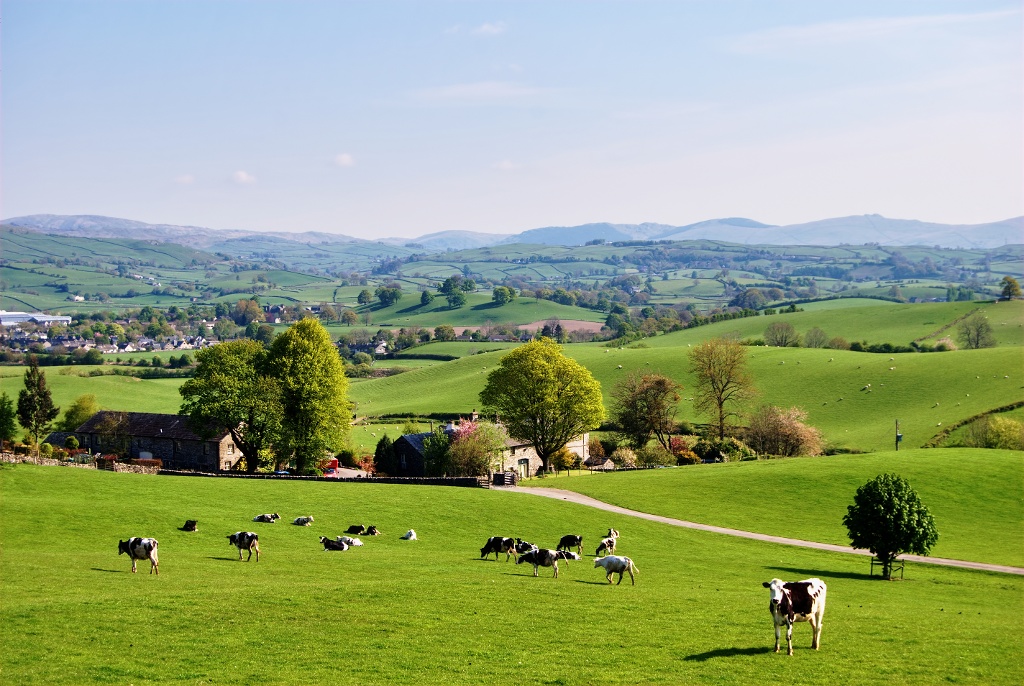Best Time to Sell Land & Achieve the Best Price
17th September 2019

Selling a piece of land does require some preparation to ensure the best value and enhance sale timescales. Clients who have held a piece of land for many years, or are gifted land often approach us for advise on the best time to sell and seek guidance on the kind of preparations they need to make for sale. Using some of the most frequently asked questions, we’ve compiled a list of guidance notes for anyone considering a land disposal.
BEST TIME TO SELL?
Basically as and when it suits you – given that you have completed or allowed time to complete the pre-sale preparation of the necessary documents, checked your tax liability given thought to the appearance of the land/yard and or farmhouse as relevant etc.
PREPARATIONS FOR SALE
TAX LIABILITY
Firstly we’d guide a perspective seller to ascertain from their accountant are they likely to have a Capital Gains Tax (CGT) liability?
As long as they have looked into this in advance of the sale, so that they know the extent of their liability, then there should be no surprises.
Very often the land agent can assist if the land holding has been held for many years and the client needs a value as to what it might have been worth, for example in 1982.
TITLE DOCUMENTS
The prospective seller needs to meet with their solicitor to ensure that the Title documents (Deeds) are all in order. For example are there any rights of ways or easements that have arisen over the years that need to be recorded on the Title?
TRANSFERS
Consider if there been any transfers of small portions to family members that have not been accurately recorded on the Title?
BANK CONSENT
In the event that there is debt owing to a Bank for example, does the Bank need to consent and approve a forthcoming sale?
PREFERENCIAL DISCOUNT
If family members, neighbours or friends wish to acquire some (or the entire asset) have any discount or preference been considered? There is no point deciding at the last moment of sale that you prefer Neighbour A to buy the land rather than Neighbour B.
OTHER CONSENTS
If there is a farm dwelling on the land, the seller may need to obtain a 'consent to discharge'.
FARMHOUSES
In rural areas, there are often farmhouses which have septic tanks which are not up to standard and may need adjustments or even replacement. If not dealt with early and an issue does arise, this can cause a conveyancing delay which can subsequently delay sale completion.
CONACRE
If the land is leased or let in conacre, then discussions need to be had in relation to when vacant possession may be granted to a new purchaser.
SALE & TIMING
There are various methods of disposal (Private Treaty, Private Tender, Public Auction, Closing Date for Offers) but we guide clients into control the length of time the land is on the market using combined ‘Closing Date for Offers/Auction’ approach in order to avoid a long drawn out transaction which only leaves both seller and buyer frustrated.
Depending on the asset, the Closing Date could be anything from 4-6 weeks from initial marketing commencing or 10-12 weeks and preferences can be discussed with the Vendor.
One of the advantages of this approach over just a Public Auction process is evident when a land holding can be sub-divided into various lots. In the Closing Date scenario we may suggest lots, but encourage the buyers to specify the fields they prefer to bid for.
This leads to more discussion with potential buyers and often by the Closing Date we have bids on groups of fields that would not have seemed like obvious sub-divisions at the outset, but the process has enabled ‘the market’ to dictate the optimum sub-division.
Assuming we have several bidders by the Closing Date, and then an Auction date can be agreed with the Vendor and the sale concluded by way of a Private Auction. By this method both buyer and seller are able to achieve certainty of price and completion date as both have entered a legally binding agreement at Auction and 10% deposit has been paid.
GUIDE PRICE
We advise clients to avoid both ‘excessive’ asking prices and ‘price on application’ approach and accept the view that the market is the best judge of value.
The land agent’s role is to advice on where they see the value, based on local knowledge and other sales evidence of similar type and location of lands.
As increasingly more enquiries are originating from browsers of websites, these ‘searchers’ will make up their mind within seconds as to whether the Guide Price quoted looks right or seems excessive.
We would usually advise to take a realistic and conservative view when discussing the Guide Price, as a non-realistic or excessive Guide will do more harm than good. From our experience, a low or conservative Guide Price will create more enquiries and viewings and the market will determine how much the property will sell for in excess of that Guide Price.
Conversely a high Guide Price will be more likely to dissuade viewers and buyers and the property will take longer to sell.
A land agent with skill and experience can guide you to setting the optimum price to create most interest, enquiries and ultimately achieve the maximum sale price for your land.
